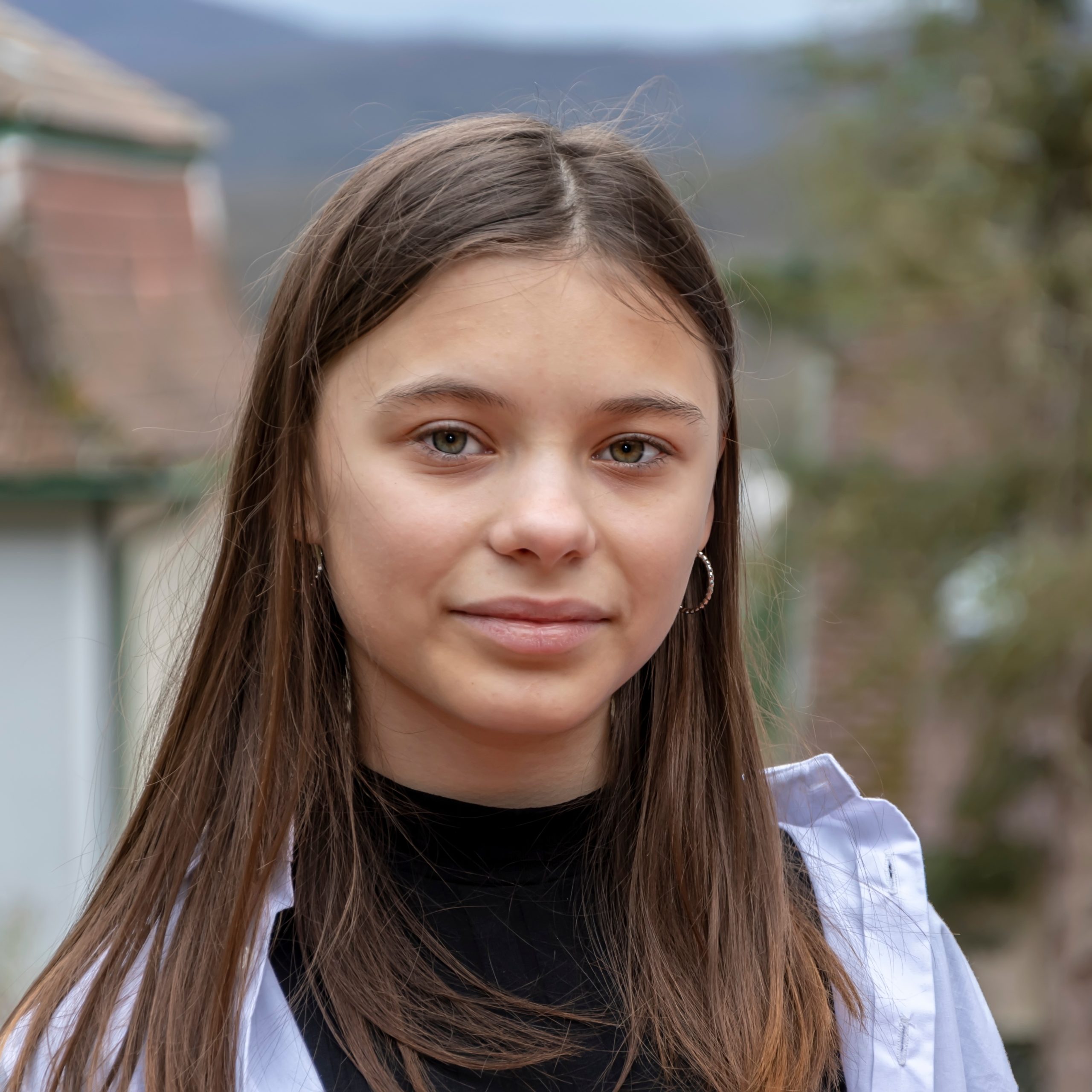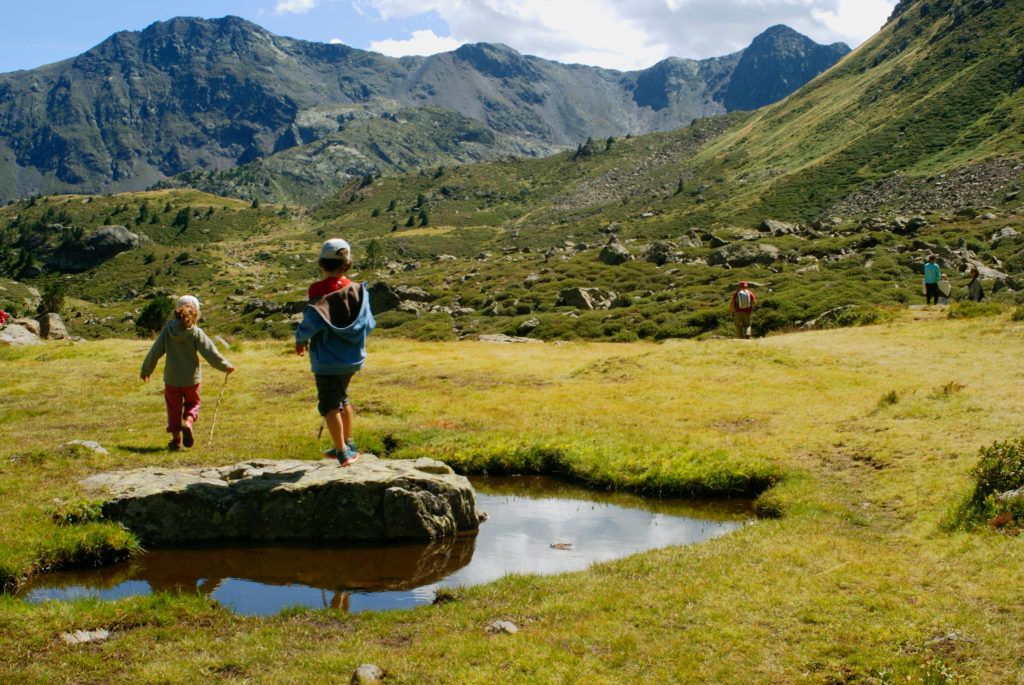Realizing Children’s Rights in Andorra


The Principality of Andorra has made significant efforts in protecting children’s rights, largely due to its small size, which facilitates the monitoring and enforcement of laws. Andorra ratified the United Nations Convention on the Rights of the Child in 1996, reaffirming its commitment to global standards. However, like many countries, there are still areas where efforts need to be made, particularly in strengthening anti-discrimination measures and addressing children’s mental health challenges.
Population: 80,856
Pop. ages 0-14: 11.6%
Life expectancy: 84.33 years
Under-5 mortality rate: 2.6 ‰
Andorra at a glance

Andorra, a principality located in the Pyrenees mountains between France and Spain, is one of the smallest countries in Europe. The official language is Catalan, though Spanish, French, and Portuguese are widely spoken. The country operates under a unique co-principality system, with the President of France and the Bishop of Urgell in Spain serving as its heads of state, making it a parliamentary democracy with a distinct historical tradition.
Parliamentary elections are held every four years to elect the General Council, the country’s legislative body. Half of the 28 seats in the General Council are elected from national party lists using proportional representation, while the other half are elected from parish lists, ensuring regional representation (Election Passport, n.d.).
With a thriving tourism industry and strong service sector, Andorra enjoys economic stability, with a very low unemployment rate (International Monetary Fund, 2023). The country maintains close ties with its neighbors and the European Union, despite not being a member state..
Status of Children’s Rights [1]
In 1996, Andorra ratified the United Nations Convention on the Rights of the Child (CRC) and has since become the first country in the world to have all its parishes certified as child-friendly by UNICEF (Committee on the Rights of the Child, 2023). The CRC remains the foundation of Andorra’s child rights policies, ensuring compliance with global standards. Andorra has also adopted the Optional Protocols to the CRC, addressing issues like child prostitution, child pornography, and the involvement of children in armed conflict (Committee on the Rights of the Child, 2005).
At the regional level, Andorra has collaborated extensively with the Council of Europe to strengthen child protection measures. Notably, it ratified the Lanzarote Convention in 2014, which focuses on combating the sexual exploitation and abuse of children (Council of Europe, n.d). In 2021, with support from the Council of Europe, the Andorran National Action Plan for Children and Adolescents was launched, focusing on preventing abuse and increasing children’s participation in policymaking (Council of Europe, 2022).
Nationally, Andorra has implemented a robust legal framework to safeguard children’s rights. The country strictly regulates child labor, prohibiting children under fourteen from working and limiting non-hazardous work for fourteen- to fifteen-year-olds to two months annually, making sure it does not interfere with their education (U.S. Department of State, 2022).
Additionally, Andorra has established an Ombudsman’s office, a channel for people to submit complaints against institutions, including the government, without influence from the accused. Andorra’s Ombudsman’s office is especially focused on children’s rights, providing a platform for addressing violations and ensuring accountability (United Nations, 2012).
Addressing the needs of children in Andorra
Right to education
The Constitution of the Principality of Andorra guarantees the right to education for all persons (Constitution of the Principality of Andorra, 1993). The country has three coexisting public education systems: Andorran, French, and Spanish, allowing parents to choose the preferred system for their children. Regardless of the system chosen, education is both free and compulsory for children aged six to sixteen, with compulsory education spanning from primary to secondary levels (Visit World, 2022).
The structure of education in Andorra is organized into several levels, namely maternal, primary, secondary, and tertiary education. As mentioned, primary and secondary education are obligatory for all residents, including expats, while maternal and tertiary education are optional (Jase Rodley, 2023). Homeschooling is not possible at any level.
Andorra boasts a 100 percent literacy rate among adults, reflecting the quality of its education system, and the resources allocated to this sector. In 2023, almost 13 percent of total government expenditure in Andorra was directed towards education (WorldBank, 2023).
Andorra’s commitment to inclusive education is noteworthy as well. The country developed an advanced system where all children, including those with disabilities and from migrant families, are integrated into mainstream classrooms. This inclusive approach ensures that every child receives the necessary support to thrive academically and socially (Council of Europe, 2016).
Right to health
Andorra upholds children’s right to health through comprehensive legislation and strategic initiatives. The Constitution guarantees the healthcare rights of all citizens, including children (European Observatory on Health Systems and Policies, 2004). Furthermore, the country’s healthcare system ensures that all children, regardless of their legal residency status, have access to necessary medical services, which is especially relevant in terms of migrant children (United Nations, 2023).
The Andorran health care system operates on a social insurance model. About 92% of the population is covered by the public system known as CASS (la Caixa Andorrana de Seguretat Social/the Andorran Office of Social Security), which is required for all employed individuals. This system is funded through employers’ and employees’ taxes.
Children under the age of eighteen are included in their parents’ insurance (European Observatory on Health Systems and Policies, 2004). Children with disabilities are guaranteed full health coverage (United Nations, 2023).
Right to identity

In Andorra, children’s right to identity is primarily regulated by nationality laws, which are based on the principle of jus sanguinis (right of blood). According to these laws, children born to parents who are Andorran citizens automatically acquire Andorran nationality, regardless of their place of birth. Children born in Andorra to non-Andorran parents can obtain citizenship if one parent was born in Andorra and was residing there permanently at the time of the child’s birth.
Additionally, if both parents had been permanent residents in Andorra for at least 10 years prior to the birth, children born to such parents can obtain Andorran citizenship. Additionally, children of stateless parents are granted Andorran nationality, under the condition that they are not given the nationality of one of the parents (Inimex, n.d).
However, challenges exist for children born to foreign parents in Andorra. For instance, children born in Andorra to foreign parents can acquire Andorran nationality only after 10 years. Furthermore, it must be noted that dual citizenship is not possible. People seeking Andorran citizenship must renounce their previous nationality, a policy that may affect a child’s sense of identity, especially if they have strong cultural or familial connections to another country (Gov.uk, 2024).
Risk factor – Country-specific challenges
Discrimination
Andorra’s legal framework emphasizes equality and non-discrimination, with the Constitution guaranteeing equal rights for all individuals and prohibiting discrimination based on birth, race, sex, origin, religion, opinion, or other personal and social characteristics.
However, certain characteristics, such as disability and language, are not explicitly included in this constitutional non-discrimination provision. This omission has raised concerns about potential gaps in protection for children facing discrimination based on these grounds (World Policy Analysis Center, 2022).
In 2019, the Law on the Rights of Children and Adolescents was amended to protect children and adolescents against discrimination on grounds of sexual orientation and gender identity. However, according to the European Commission against Racism and Intolerance, Andorra still has space left for strengthening the legislation on legal gender recognition in the context of transgender youth, stating that the process should be faster and further simplified (Council of Europe, 2024).
Mental health
Child mental health in Andorra has become an area of increasing concern, with recent studies highlighting significant challenges among adolescents. According to a 2024 report by Andorra Research and Innovation and UNICEF Andorra, 10% of Andorran adolescents have experienced suicidal thoughts. Additionally, 16% of adolescents show symptoms of severe depression (Cadena, 2024).

Another worrying point is the fact that children experiencing mental health issues are often placed in institutional settings due to a lack of community-based mental health services (United Nations, 2023). This practice is problematic as it can lead to poorer outcomes compared to family-based settings, including increased risks of aggression, delinquency, and depression (Casey Family Programs, 2022).
Andorra has been working on improving the situation in terms of addressing the mental health of children and adolescents, which has been demonstrated by adopting a comprehensive plan for mental health and addictions. The Community Rehabilitation Service for Adolescents has been created, serving as a pioneering rehabilitation unit to enable continuous care for adolescents with severe mental disorders (United Nations, 2023).
Environmental challenges

Located in the Pyrenees mountains, Andorra faces potential risks related to climate change, such as extreme weather events or shifts in seasonal patterns. Specifically, Andorra is experiencing increased heat exposure and facing future heightened heat risks. The projected further decline in annual snow cover by 75–100 cm by 2090 is expected to seriously affect Andorra’s ecosystem and economy (International Monetary Fund, 2024).
As Andorra relies on winter tourism, this climate shift can affect the economic stability of Andorran families, which can have serious consequences for children (International Monetary Fund, 2024). The economic instability may require families to relocate, disrupting children’s education and social life. It can also limit family resources previously allocated to children’s extracurricular activities and recreation, which may impact their overall development.
Andorra’s government is working on fighting this issue. However, while the preventive measures aiming to combat the causes of climate change are well developed, it is necessary to accelerate the adaptation to already existing changes and work on adaptation plans for the future (International Monetary Fund, 2024).
Written by Zeljka Mazinjanin
Internally proofread by Aditi Partha
Last updated on February 9, 2025
References:
Amnesty International (2023), Andorra 2023. Retrieved from Amnesty International, available at https://www.amnesty.org/en/location/europe-and-central-asia/western-central-and-south-eastern-europe/andorra/report-andorra/?utm_source=chatgpt.com, accessed on January 24, 2025.
Bernhard, M. (2019), Andorra’s abortion rights revolution. Retrieved from Politico, available at https://www.politico.eu/article/andorras-abortion-rights-revolution/, accessed on January 22, 2025.
Cadena (2024), Un 10% dels adolescents té idees suïcides. Retrieved from Cadena, available at https://cadenaser.com/andorra/2024/11/19/un-10-dels-adolescents-te-idees-suicides-radio-ser-principat-d-andorra/?utm_source=chatgpt.com, accessed on February 3, 2025.
Casey Family Programs (2022), What are the outcomes for youth placed in group and institutional settings? Retrieved from Casey Family Programs, available at https://www.casey.org/group-placement-impacts/?utm_source=chatgpt.com, accessed on February 3, 2025.
Committee on the Rights of the Child (2005), Consideration of reports submitted by states parties under article 12, paragraph 1, of the optional protocol to the Convention on the Rights of the Child on the sale of children, child prostitution and child pornography. Retrieved from United Nations, available at https://docstore.ohchr.org/SelfServices/FilesHandler.ashx?enc=6QkG1d%2FPPRiCAqhKb7yhsrHPiif0%2F1kumQo%2BD50%2F9nZRt3jeXExwXTKEltMokLqVrs07VSwiMtCRIh%2FzOXc4rCnugeYjgwHvtF0w%2FyFsHcwkUBWQcU6Gtn0girHLLdjM, accessed on January 22, 2025.
Committee on the Rights of the Child (2023), Replies of Andorra to the list of issues in relation to its combined third to fifth periodic reports. Retrieved from United Nations, available at https://documents.un.org/doc/undoc/gen/g23/117/54/pdf/g2311754.pdf, accessed on January 22, 2025.
Constitution of the Principality of Andorra (1993). Retrieved from Consell General Principat D’Andorra, available at https://www.consellgeneral.ad/fitxers/documents/constitucio/const-en, accessed on January 24, 2025.
Council of Europe (2024), Andorra Should Combat Racism, LGBTI-Phobia, and Expand Voting Rights. Retrieved from the Council of Europe, available at https://www.coe.int/en/web/portal/-/andorra-urged-to-combat-racism-lgbti-phobia-and-expand-voting-rights, accessed on February 3, 2025.
Council of Europe (2016), Andorra: sustain progress on children and women’s rights and bolster human rights structures. Retrieved from Council of Europe, available at https://www.coe.int/en/web/commissioner/-/andorra-sustain-progress-on-children-and-women-s-rights-and-bolster-human-rights-structures?utm_source=chatgpt.com, accessed on January 24, 2025.
Council of Europe (n.d.), Convention. Retrieved from Council of Europe, Children’s Rights, available at https://www.coe.int/en/web/children/convention, accessed on January 24, 2025.
Council of Europe (2022), Andorran National Action Plan for Children and Adolescents is launched in a high-level Roundtable in Strasbourg. Retrieved from Council of Europe, Newsroom on Children’s Rights, available at https://www.coe.int/en/web/children/-/andorran-national-action-plan-for-children-and-adolescents-is-launched-in-a-high-level-roundtable-in-strasbourg, accessed on January 24, 2025.
European Observatory on Health Systems and Policies (2004), Andorra, Country Overview. Retrieved from European Observatory on Health Systems and Policies, available at https://eurohealthobservatory.who.int/countries/andorra, accessed on January 24, 2025.
Election Passport (n.d), Andorra. Retrieved from Election Passport, available at https://www.electionpassport.com/electoral-systems/andorra/, accessed on February 3, 2025.
Gov.uk (2024), Andorra: Knowledge Base profile. Retrieved from Gov.uk, available at https://www.gov.uk/government/publications/andorra-knowledge-base-profile/andorra-knowledge-base-profile?utm_source=chatgpt.com, accessed on January 24, 2025.
Inimex (n.d.), Andorra: Family reunification program. Retrieved from Inimex, available at https://immigrationeu.com/en/tag/tag-andorra/, accessed on January 24, 2025.
International Monetary Fund (2024), Climate Change in Small Open Economies: The Case of Andorra. Retrieved from International Monetary Fund eLibrary, available at https://www.elibrary.imf.org/view/journals/002/2024/058/article-A003-en.xml, accessed on February 7, 2025.
International Monetary Fund (2023), Principality of Andorra: Staff Concluding Statement of the 2023 Article IV Mission. Retrieved from https://www.imf.org/en/News/Articles/2023/12/18/cs121823-principality-of-andorra-concluding-statement-of-the-2023-article-iv-mission, accessed on January 22, 2025.
Jase Rodley (2023), Navigating Andorra’s School System: An Expat’s Guide. Retrieved from Jase Rodley, available at https://jaserodley.com/schools-in-andorra/, accessed on January 24, 2025.
Nurturing Care (2024), A Threat to Progress: Confronting the Effects of Climate Change on Child Health and Well-being. Retrieved from Nurturing Care, available at https://nurturing-care.org/a-threat-to-progress-confronting-the-effects-of-climate-change, accessed on February 7, 2025.
United Nations (28 September 2023), UN Child Rights Committee publishes findings on Albania, Andorra, Dominican Republic, Kyrgyzstan, Liechtenstein and Togo. Retrieved from United Nations Human Rights, Office of High Commissioner, available at https://www.ohchr.org/en/press-releases/2023/09/un-child-rights-committee-publishes-findings-albania-andorra-dominican, accessed on January 22, 2025.
United Nations (2012), Committee on the Rights of the Child examines report of Andorra. Retrieved from United Nations Human Rights, Office of High Commissioner, available at https://www.ohchr.org/en/press-releases/2012/09/committee-rights-child-examines-report-andorra, accessed on January 24, 2025.
United Nations (8 September 2023), Experts of the Committee on the Rights of the Child Commend Andorra for Having No Child Prisoners, Ask Questions about Access to Housing and the Minimum Age of Criminal Liability. Retrieved from United Nations Human Rights, Office of High Commissioner, available at https://www.ohchr.org/en/news/2023/09/experts-committee-rights-child-commend-andorra-having-no-child-prisoners-ask-questions, accessed on January 24, 2025.
U.S. Department of State (2022), Andorra 2022 Human Rights Report. Retrieved from U.S. Department of State, available at https://www.state.gov/wp-content/uploads/2023/02/415610_ANDORRA-2022-HUMAN-RIGHTS-REPORT.pdf, accessed on January 24, 2025.
Visit World (2022), The privileges of studying in Andorra: everything about the school and university education systems. Retrieved from Visit World, available at https://visitworld.today/blog/1184/the-privileges-of-studying-in-andorra-everything-about-the-school-and-university-education-systems#reasons-to-study-in-andorra, accessed on January 24, 2025.
World Bank (2023), Government expenditure on education, total (% of government expenditure. Retrieved from World Bank, available at https://data.worldbank.org/indicator/SE.XPD.TOTL.GB.ZS, accessed on January 24, 2025.
World Policy Analysis Center (2022), Andorra, Submission to the Committee on the Rights of the Child 94th Pre-Sessional Working Group, February 2023 NGO Report. Retrieved from World Policy Analysis Center, available at https://www.worldpolicycenter.org/sites/default/files/2023-03/CRC_WORLD_Policy_Analysis_Center_Andorra_PSWG94.pdf?utm_source=chatgpt.com, accessed on February 3, 2025.
Zareba, K., Herman, K., Kolb-Sielecka, E., Jakiel, G. (2021), Abortion in Countries with Restrictive Abortion Laws—Possible Directions and Solutions from the Perspective of Poland. Retrieved from National Library of Medicine, available at https://pmc.ncbi.nlm.nih.gov/articles/PMC8618220/, accessed on January 22, 2025.
[1] This article by no means purports to give a full or representative account of children’s rights in Andorra; indeed, one of many challenges is the scant updated information on Andorran children, much of which is unreliable, not representative, outdated or simply non-existent.

